International Tensions Abound
During the Cold War, the Olympics were the only occasion where the USSR and the USA could take direct shots at each. The closing seconds of the 1972 men’s basketball game turned an already-frigid affair into a heated dispute that eventually boiled over. This game’s ending is one of the most disputed conclusions in Olympic history, and is a sort spot for many Americans to this very day…
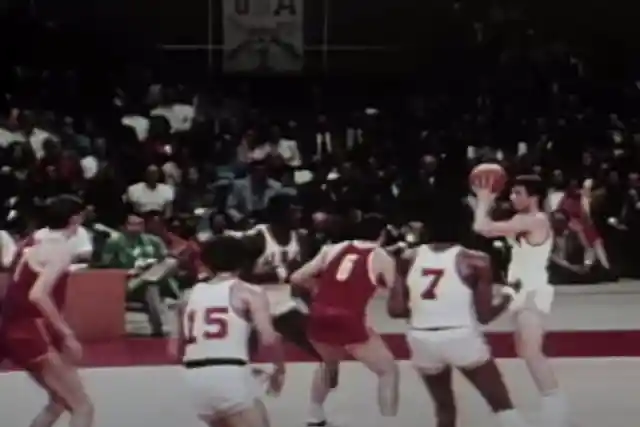
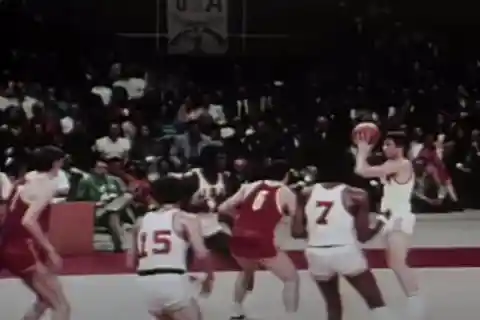
By the time the 1972 Summer Olympics rolled around, there had been some recent breakthroughs in the relations between the USA and the USSR, but their conflict was far from over. The games took place in Munich, West Germany, a city still dealing with the fallout from World War II. International tensions were further heightened when Israeli athletes were attacked just three days prior to the September 9th basketball game. The attack was so brutal that International Olympic Committee considered canceling the games altogether, but it elected to green-light the remaining five days of matches.
Great Expectations
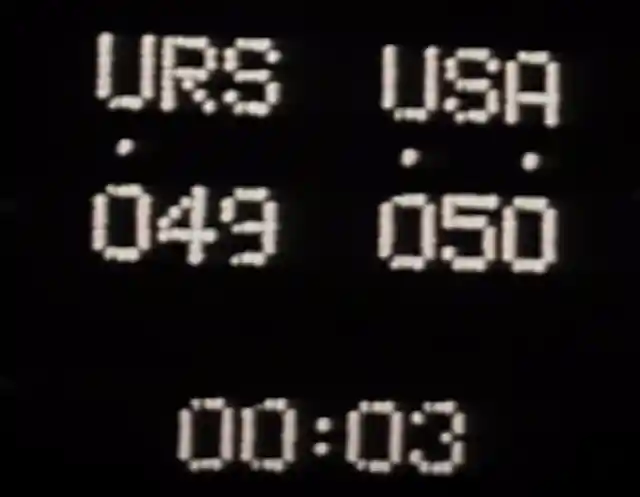
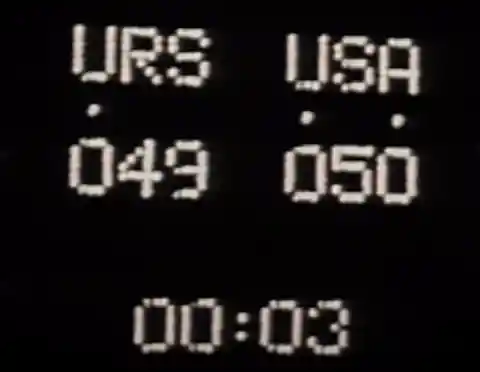
The USA team had won the gold medal in basketball for the last seven Olympiads in a row. Those men felt a mix of pride and accomplishment going into the match, as well as extra pressure to take home the gold for their country.
The era of Americans walking through the tournament was at its twilight, but many will argue that it shouldn’t have ended there. Other nations, most notably the Soviet Union and Yugoslavia, were catching up. Soviet coach Vladimir Kondrashin would later state that the Americans lost this game because they underestimated their opponent. Every member of the United States roster would beg to differ. What really happened?
How The Game Played Out
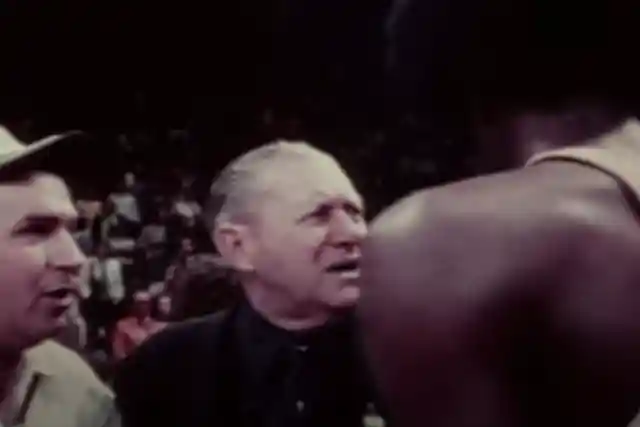
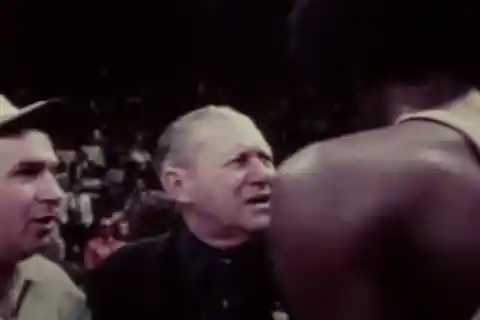
The United States team was being challenged like never before as they battled against the Soviets on the court. The USSR led by a single point and as the game was winding down, USA team member Doug Collins intercepted a wayward pass and sprinted down the court, getting fouled hard on a lay-up attempt.
What happened next is subject to much debate. Coach Kondrashin claimed he pressed the button on the electronic device to call a timeout. According to the rules of the time, he was given a choice of whether to use the break before or after the first free-throw attempt. He claimed he chose to use it after.
As Doug Collins shot his second free throw, the horn sounded, but nobody reacted. The Soviet coach charged the scorers’ table as his players were taking the ball up the court. Then a referee noticed the commotion and stopped Sergei Belov at the mid-court line. The broadcasters were confused and so were the majority of the players, staff, and people in attendance. Was there a timeout? The Soviets claimed there should’ve been. But there wasn’t.
The referee stopped the play, denied the timeout request, asked for the official clock to be set back to three seconds, and then ordered the Soviets to inbound the ball. They did so, and very quickly. In fact, they moved so fast that the cameras barely captured the moment. It was all over.
The full-court heave bounced awkwardly off the backboard, and the Americans rushed the court in celebration. The comeback from a 10-point deficit earlier in the game was one for the history books. The fans and reporters rejoiced. Everybody was jumping for joy on the parquet – the USA winning streak was alive and well.
As fans flooded the arena in celebration, FIBA officials were on the sidelines, debating the final play. It sounded to some like the horn went off a little too early. Further investigation revealed that the timekeeper didn’t reset the clock. The referee ordered the Soviets to inbound the ball. Again.
This time, it was Edeshko who threw the long pass towards Belov, running the same play that won them a national championship the preceding year. The result was the same. As Belov and two American teammates, Kevin Joyce and Jim Forbes, leaped for the ball, it was the Soviet player who grabbed it. The Americans fell to the ground, Belov scored the uncontested lay-up, and he ran with his arms aloft toward his teammates, who mobbed him for a frantic celebration.
After The Buzzer Rang
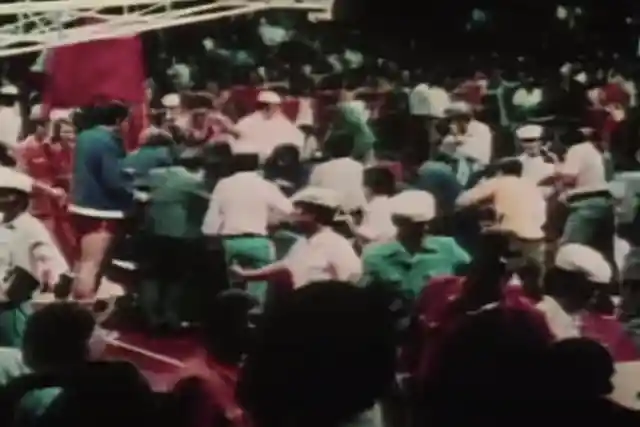
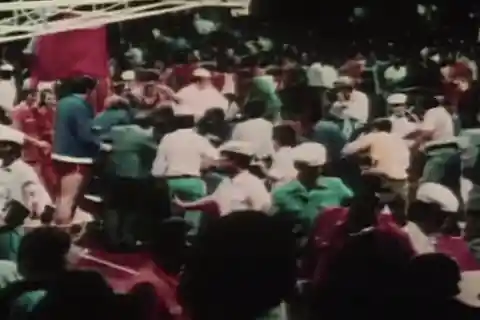
This pass would later become known as the “Golden Pass” in the Soviet Union, akin to Diego Maradona’s “Hand of God” play. And just like Maradona, this play would be widely contested, with many fans around the world feeling that the Soviets cheated. Naturally, the USSR players were heartily celebrated in their home country.
On the other side of the coin were the Americans. The official protest was filed the very next day, but to no avail. Although the vote was anonymous, three members of the five jurymen were from the Eastern Bloc, under Soviet influence. It’s possible they voted against the USA team due to allyship or political pressure, although they may have genuinely disagreed with the protest.
In an act of defiance, the United States team refused to accept the silver medals and left their place on the floor empty. Those medals were placed in a vault in Lausanne, Switzerland. Years later, there was a petition to award a duplicate set of gold medals to the members of the US team as well, but it was denied. The United States still doesn’t agree with the official ruling, and to this day has never collected its silver medals.